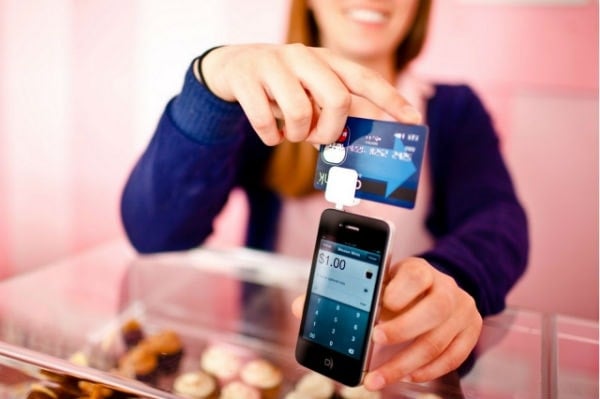
UPDATE: Utah Surprises NSA with Huge Tax Bill
December 11, 2014
Friday Fun Blog: Liam Neeson Edition
December 12, 2014Editor’s Note: The original article (posted below the line) was published on February 10, 2014. An update on the subject matter was sorely needed….
It seems like we hear of a new company having their data breached all the time nowadays. If big box retailers are having this problem, then what’s to stop a small business using a Square reader or Paypal Here credit card reader from being hacked?
What is Mobile Payment Fraud Risk?
Stores like Target and Home Depot have fraud prevention tools, even if someone was able to get through them. When you just plug a device into your smartphone or tablet, what is really protecting your customer?
These mobile card readers are alluring for small businesses, because they’re more affordable than a complete credit card system, and they pay fees based on swipes. But encryption is minimal when you’re talking about a device that can fit inside your pocket.
Paying by smartphone has been a concept trying desperately to catch on, and is just now picking up steam with Apple Pay. For the consumer, they pay with their thumbprint on their iPhone 6, which is linked to their credit or debit card within Passbook.
Apple brags about how secure the setup is because of unique Device Account Numbers, which encrypt and securely store Apple Pay users’ data. But how many small businesses can even afford an NFC-compatible machine?
That’s where Square comes back into the picture. It was just released that Square and Apple Pay will link up in 2015, to provide a new chip reader for $29, that supports EMV-compatible credit cards. Even the $99 standalone Square Stand is an affordable option for mom-and-pop shops, and will cover their butts while still remaining cool on the payment side.
Credit card fraud is far from being a non-issue, but we’re excited to see what these new improvements will do to protect both, businesses and their customers, when it comes to their personal and financial data.
Original:
Who’re the jerks that are frauding small businesses?
Nobody likes being involved in fraud (unless you’re doing the frauding, am I right?! Muahahaha), especially small businesses, because it hurts their bottom line. Mobile payments are everywhere—from mobile sites, apps and mobile card readers—so the risk of fraud goes way up. A study by LexisNexis (the typing people?) shows that small businesses that have at least one mobile payment option increase their risk for fraud and other schemes.

Small business mobile payments
Small businesses often don’t have the funds to be able to purchase or use the same fraud prevention tools as the larger companies, because duh. The whole system is a catch-22, essentially: you need to expand your business and you begin offering mobile payments through an app or through a mobile card reader, but you also put yourself at a greater risk for fraud, which will ultimately affect your bottom dollar and customer loyalty. The study shows that for every $1 in product stolen, it costs the business nearly three times as much for various fees that go along with fraudulent transactions (chargebacks, processing, fraud investigation, restocking, etc.) Not cool, bro. Not cool. Small businesses are people too, yo.
Credit card fraud is one of the easiest things to pull off—just ask the 40 million people that had their cards stolen from Target. It’s easier to pull off fraudulent charges, especially with small businesses due to their options when it comes to mobile payment authentication. Don’t worry, though, because there are some precautions you can take to keep your small businesses safe. For instance, authenticating the person on the other side of the credit card when they make a purchase through an app or mobile site by using the identifying features of their device can help prevent fraudulent charges.
Or, maybe just don’t pick on the small guys. Jerks.